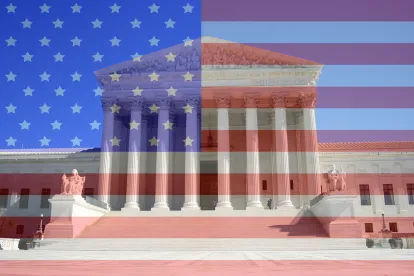Title VII of the Civil Rights Act of 1964 (“Title VII”) prohibits discrimination in the workplace on the basis of race, color, religion, sex, and national origin. On June 15, 2020, the U.S. Supreme Court (the “Court”) held in Bostock v. Clayton County that Title VII’s protections extend to the LGBT community.
Background
Bostock actually involved three separate cases: Bostock, Zarda v. Altitude Express, and Stephens v. Harris Funeral Homes. In Bostock, Clayton County, Georgia, fired Gerald Bostock for conduct “unbecoming” a county employee shortly after he began participating in a gay recreational softball league. In Zarda, the employer fired Donald Zarda from his job as a skydiving instructor days after he mentioned being gay. In Harris Funeral Homes, employee Aimee Stephens, who presented as a male when she was hired, was fired after she informed her employer that she planned to live and work as a woman because she identified as a woman. In dismissing Mr. Bostock’s lawsuit, the Eleventh Circuit held that Title VII did not prohibit employers from firing employees for being gay. The Second and Sixth Circuits disagreed and allowed Zarda’s and Stephens’ suits to proceed.
The Court’s Decision
Writing for a six-Justice majority, Justice Gorsuch held that Title VII’s protections against discrimination or harassment “because of sex” extend to members of the LGBT community. Specifically, Title VII prohibited firing the Plaintiffs because they were gay or transgender, because sex necessarily plays a role in the decision.
The Court based its holding on the plain language of the Title VII forbidding discrimination “because of sex”. Simply put, if two individuals are materially identical in all respects, except for being a man and woman, the employer discriminates against a male employee if it decides to fire the male employee if the male employee is attracted to men, but does not fire female employees who are attracted to men. Thus, the employer is discriminating on the basis of sex by firing the employee for his or her sexual attraction. In the case of a transgender employee, if an employer fires an employee whose sex was assigned at birth as male but identifies as female, but retains an employee whose sex was assigned as female at birth and continues to identify as female, the employer also discriminates on the basis of sex. In both cases, the employer is discriminating because of sex.
The Court found that Title VII clearly and unambiguously prohibited discrimination because of sex. Rejecting the argument that protection of LGBT employees might have been “unexpected” when Title VII was passed in 1964, the Court emphasized that its role is to neutrally interpret the clear language of a statute. To do otherwise would “tilt the scales of justice in favor of the strong or popular and neglect the promise that all persons are entitled to the benefit of the law’s terms.”
What this Decision Means for Employers
Before Bostock, many state and local laws already extended protection based on sexual orientation and gender identity to varying degrees. In Wisconsin, the Wisconsin Fair Employment Act prohibits discrimination based on sexual orientation, and the Madison Equal Opportunities Ordinance and the Milwaukee Equal Rights Ordinance prohibit discrimination based on sexual orientation and gender identity or expression. Although these laws extend the same non-discrimination obligations to employers as under Title VII, these laws do not provide the same relief to employees.
In the wake of Bostock, we recommend that employers take the following steps in order to comply with Title VII:
- Review policies and handbooks to ensure that nondiscrimination and harassment policies extend to sexual orientation and gender identity;
- Communicate and train employees on updated policies;
- Refrain from taking any adverse employment actions against employees based on sexual orientation and gender identity;
- Thoroughly document and investigate all allegations of suspected sexual harassment or discrimination based on sexual orientation or gender identity.
Bostock has accurately been portrayed as a landmark case affecting civil rights and the workplace. Although many employers already have been aware of their non-discrimination obligations under state and local laws, this Supreme Court decision is an excellent reminder that employers should implement “best practices” as to policy and training.



 />i
/>i


